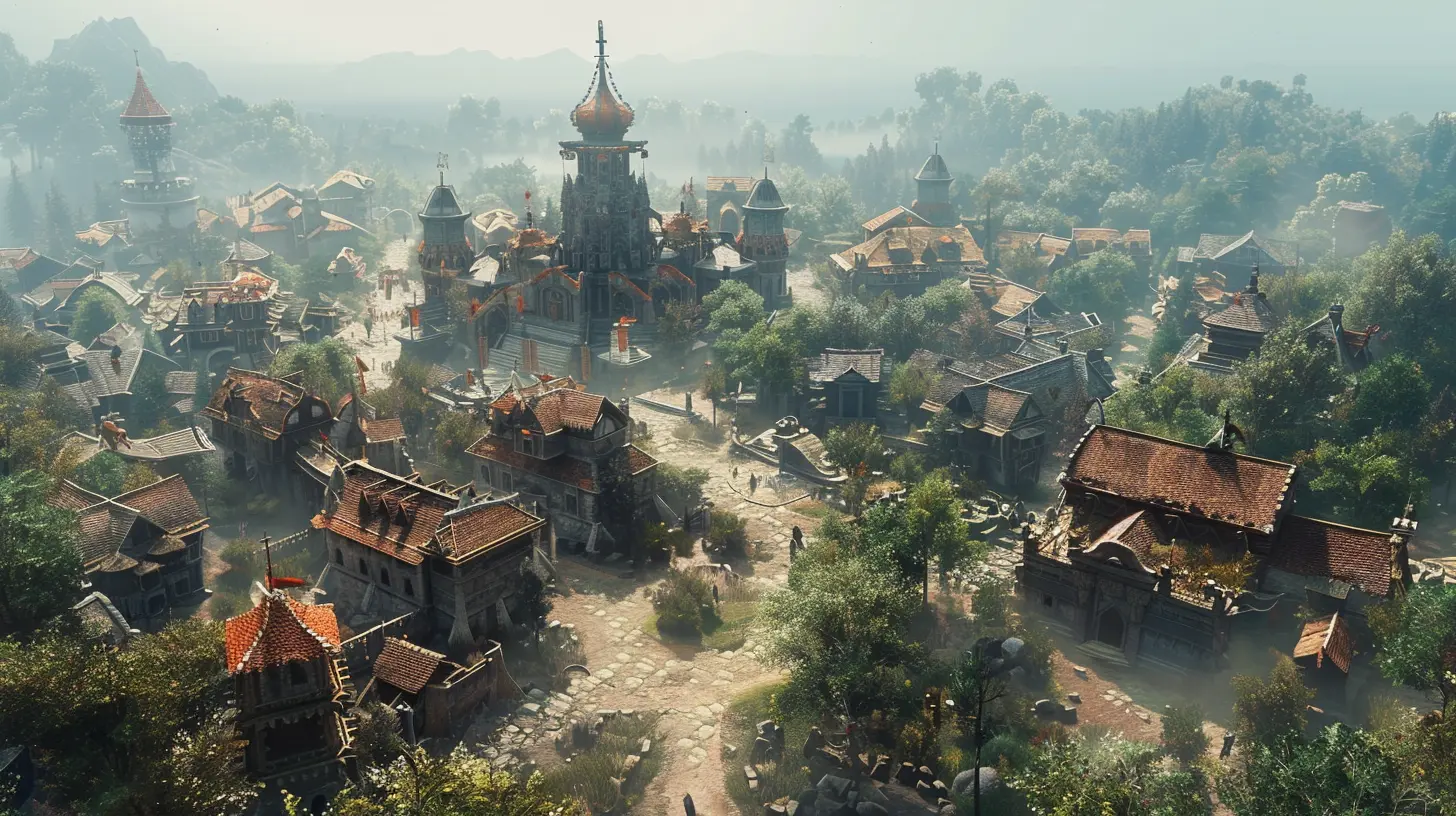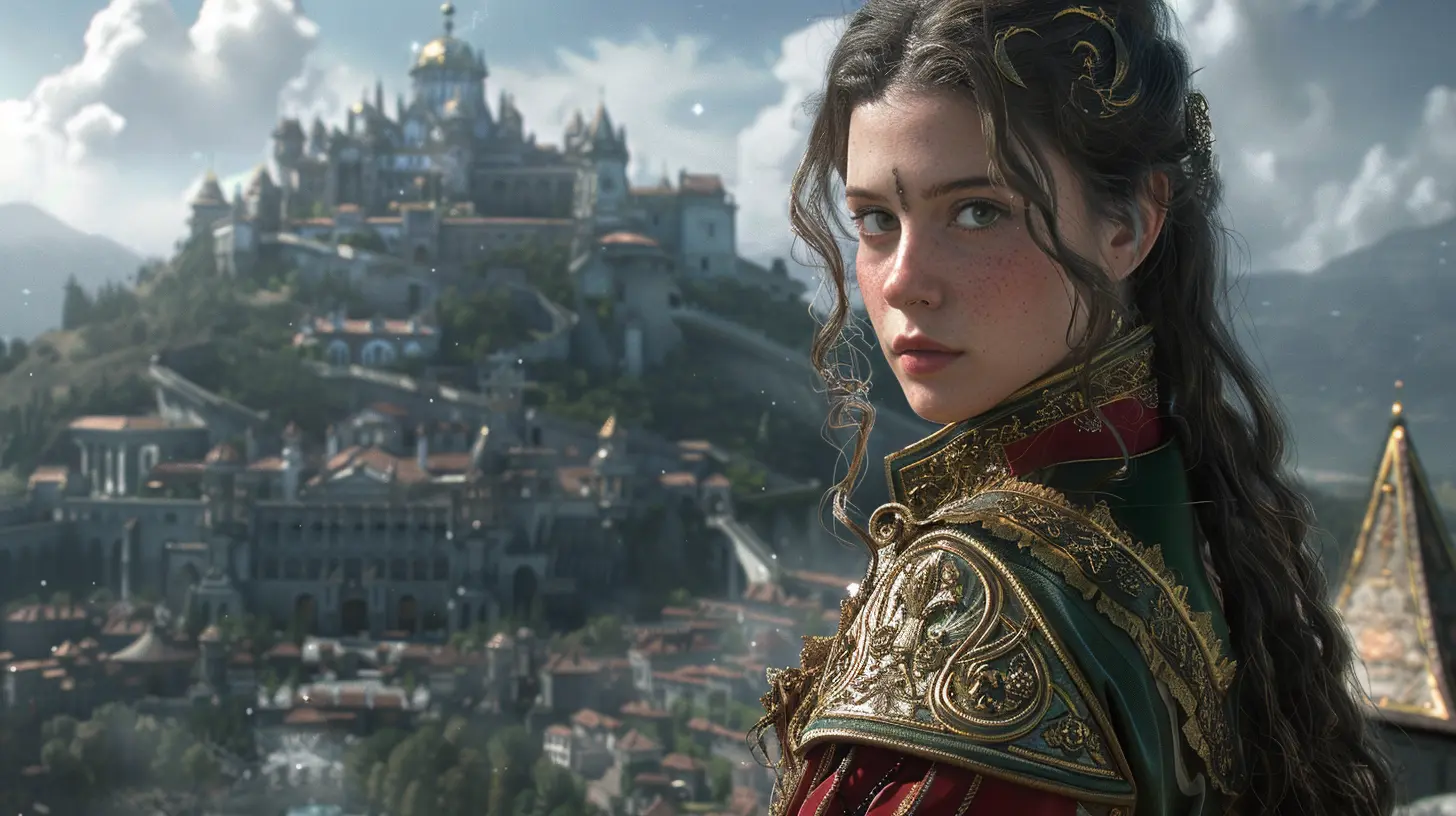Building History: The Importance of Lore in World Building
25 May 2025
When it comes to creating immersive, believable worlds—whether for video games, novels, or tabletop RPGs—lore is the secret sauce. It's the backbone that supports the narrative, the unseen layer that makes everything feel richer and more meaningful. Honestly, without good lore, a world feels flat, like a stage set propped up with cardboard props. But what exactly is it about lore that makes it so important for world-building? And how can creators use it to their advantage? Grab a drink, settle in, and let’s unravel this fascinating topic.
What Is Lore, Anyway?
Before we dive in headfirst, let’s talk about what "lore" even means. Think of lore as the history, culture, and myths of a fictional world. It’s not just the plot; it’s the stuff in the background that makes the world tick. It’s the ancient wars mentioned in passing, the reason why two factions hate each other, or the story behind that crumbling statue in the middle of the town square.In short, lore is the "why" behind everything. Why does this kingdom exist? Why are magic users feared? Why does no one dare enter that creepy forest? These answers don’t have to be handed to the audience on a silver platter, but they should exist. Without them, the world feels hollow—like visiting a theme park after closing hours. It might look cool, but something’s missing.
Why Does Lore Matter?
Alright, so now that we know what lore is, let’s talk about why it’s crucial for world-building. You might be thinking, "Can’t I just design a cool map and make up stuff as I go?" Well, sure, you could. But skipping the lore is like baking a cake without eggs. It might look alright on the outside, but cut into it, and everything crumbles.1. Gives Depth and Believability
Good lore adds layers to your world. It makes it feel lived-in, as if it existed long before the player or reader arrived. It’s the subtle details—the buried ruins with inscriptions no one can read, the old songs sung by villagers, the holiday traditions that seem oddly specific. These tidbits make the world feel like it’s more than just a backdrop for the story; it’s a character in its own right.Think about games like The Elder Scrolls series. You can practically get lost reading books about Tamriel’s history in Skyrim. Those tiny details might seem irrelevant, but they enrich the experience. You’re not just wandering through generic towns; you’re exploring a world with centuries of history, shaped by its own struggles, triumphs, and disasters.
2. Helps Build Emotional Connection
Why do we care so much about fictional worlds? Because lore gives us reasons to care. When you know the backstory of a city, you feel more invested in protecting it from danger. When you learn the tragic history of a race, you empathize with their plight. Lore fuels emotional engagement by giving meaning to the places, people, and conflicts in your story.Take Dark Souls, for instance. At first glance, it’s just a game where you wander around fighting creepy monsters. But dig into its lore, and you’ll uncover a heartbreaking tale of gods, betrayal, and decay. Suddenly, every enemy encounter feels heavier, every crumbling castle has a story to tell, and you realize you’re walking through the ruins of something far greater than yourself.
3. Sets the Rules of the World
Every fictional universe needs rules—boundaries that define what’s possible and what’s not. Lore acts as a guidebook for these rules. If magic exists, what governs its use? If factions are at war, what sparked the conflict? Lore ensures there’s consistency, so your world doesn’t feel like a patchwork of random ideas.Imagine Game of Thrones without its in-depth lore. The politics, the rivalries, the alliances—all of it would fall apart without the deep-rooted histories of the houses and kingdoms. The lore isn’t just fluff; it’s the glue holding the entire story together.
Crafting Compelling Lore: Where to Start?
Building lore can feel intimidating. Where do you even begin? The trick is to think about the big picture first, then work your way down to the finer details. Here are some tips to get you started:1. Start With the Past
Every world has a history. What events shaped the current state of things? Was there a great war? An old empire that crumbled? A cataclysmic event that changed everything? Think of your world’s past like the foundation of a house—it supports everything you’ll build on top of it.2. Create Cultures and Traditions
Think about how different societies in your world would behave. What do they believe in? What are their customs, festivals, and taboos? If you want your world to feel diverse, give each culture its own flavor. Even small things, like regional slang or unique foods, make a big difference.For example, in The Witcher games, every kingdom has its own distinct culture. From Nilfgaard’s militaristic precision to Skellige’s Viking-inspired traditions, the differences are striking and memorable.
3. Design Myths and Legends
Every culture has its stories—tales of heroes, monsters, and gods. These myths can serve multiple purposes: they provide entertainment, impart moral lessons, and explain the unexplainable. Plus, they’re a fantastic way to hint at your world’s deeper mysteries.Remember the Legend of Zelda series? The games are packed with myths about an eternal battle between good and evil, embodied by Link, Zelda, and Ganon. Whether or not you dive into the finer details, those legends set the stage for every game in the franchise.
4. Use Subtle Storytelling
Not everything needs to be spelled out. Some of the most compelling lore is woven into the environment or hinted at through dialogue. Instead of dumping paragraphs of exposition, let players or readers piece things together on their own. It’s like leaving breadcrumbs for someone to follow—a little mystery goes a long way.One stellar example is Bloodborne, a game where much of the lore is buried in item descriptions and cryptic NPC dialogue. Fans have spent years unraveling its tangled web of history, and honestly, that’s part of the fun.
Balancing Lore and Plot
Now, here’s the thing: lore is important, but it shouldn’t overshadow the main story. It’s like seasoning a dish—too much, and it overpowers everything else. The best approach is to let your lore support the plot without hijacking it. If your audience feels like they need a 300-page manual to understand what’s going on, you’ve probably gone too far.Take Mass Effect, for example. The games are rich in lore, from the history of the galaxy to the biology of its alien species. But that lore serves the main story—it adds stakes, depth, and context without overwhelming the player. You don’t need to know every detail about the Krogan genophage, but if you want to dig deeper, the information is there.
Why Lore Matters More Than Ever
In today’s gaming landscape, players expect more than flashy graphics or fast gameplay. They want worlds that feel real, places they can lose themselves in for hours. That’s why lore is more critical than ever. It transforms your creation from a product into an experience—something people will remember long after the credits roll.So, whether you’re a game dev, a writer, or just someone tinkering with your own world-building project, don’t skip the lore. Take the time to flesh out your world’s history, its cultures, its hidden secrets. Because let’s be honest: the coolest sword in the world means nothing if we don’t know the story behind it.
all images in this post were generated using AI tools
Category:
World BuildingAuthor:

Audrey McGhee
Discussion
rate this article
3 comments
Nyx Reyes
This article brilliantly highlights how lore enriches world-building in games. A well-crafted backstory not only enhances player immersion but also creates a deeper emotional connection to the game, making the experience more memorable and engaging. Well done!
June 6, 2025 at 4:35 PM

Audrey McGhee
Thank you! I'm glad you found the article insightful. Lore truly is essential for creating immersive and memorable gaming experiences!
Bria Wilkins
Absolutely loved this article! Lore really enriches the gaming experience, making worlds feel alive and immersive. It’s fascinating how history shapes gameplay and character development. Can’t wait to dive into some of the titles you mentioned! Keep up the great work!
May 29, 2025 at 5:18 AM

Audrey McGhee
Thank you so much for your kind words! I’m glad you enjoyed the article and found the discussion on lore engaging. Happy gaming!
Charlie McMillan
Lore is the backbone of immersive world-building. It enriches narratives, deepens player engagement, and breathes life into game universes. Without a compelling backstory, even the most intricate designs fall flat. Developers must prioritize lore to create memorable experiences that resonate with players long after they've put the controller down.
May 27, 2025 at 2:52 AM

Audrey McGhee
Absolutely! Lore truly enriches the gaming experience, transforming mere gameplay into a captivating journey that players remember. Prioritizing well-crafted backstories is essential for creating immersive and memorable game worlds.



